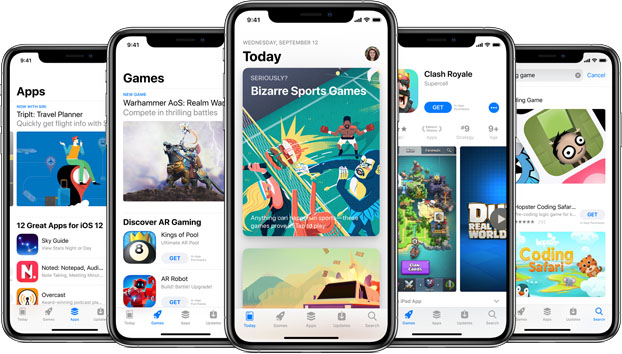
Apple CEO Tim Cook was, as expected, questioned about Apple's App Store policies during today's antitrust hearing with the U.S. House Judiciary Antitrust Subcommittee. Cook primarily stuck to the talking points provided in his opening statement [PDF], but he did have some extra color to add.

Cook was specifically questioned about email app "Hey" from Basecamp, which was at the center of a huge controversy earlier this year after Apple approved the app and then threatened to remove it from the App Store because Hey was skirting Apple's in-app purchase rules.
At issue was the fact that the "Hey" app was non-functional for customers unless they subscribed to the $99 per year Hey email service outside of the App Store. Hey did not want to give Apple a 30 percent cut of profits, while Apple claimed that it did not want an app that "doesn't work" on the App Store. Hey at the time opened to a blank screen asking users to log in.
When asked about the inconsistency over the approval of the app and the subsequent controversy, Cook didn't have much to say other than pointing out that the issue was resolved and that the App Store provides a lot of value for developers.
Cook went on to explain that Apple does sometimes make mistakes given the volume of apps that are examined each week. "I'm sure we made errors," said Cook. "We get 100,000 apps submitted a week and there are 1.7 million apps in the App Store."Hey is in the App Store today and we're happy that they're there. I believe they have a version of their product for free so they're not paying anything on that. I would also say that the 15 or 30 percent is for lots of different services, compilers, programming languages, APIs, etc. [...]
It's an economic miracle that the App Store allows a person in their basement to start a company and serve 170 countries in the world. I believe it's the highest job creator in the last decade.
Cook was asked if Apple's 15 to 30 percent cut that it takes from apps squeezes out the next generation of App makers and whether it's unjust, and Cook said no.
There were questions on whether Apple was "extracting" commissions from apps that have had to change their business models in response to the pandemic like Airbnb and ClassPass, (as outlined here) and whether this was pandemic profiteering.No, I don't think so. There are a lot of apps on the store and a lot of people are making a very good living.
Cook said Apple would "never do that." He went on to explain that if something has moved to a digital service that does not follow the App Store rules, that it does need to go through the App Store. "In the cases I'm aware of, we're working with the developers," he said.
As for educational apps, Cook said that Apple will not make efforts to monetize apps that students adopt as they transition to learning digitally.
When asked about limiting copy cat apps and whether those rules apply to Apple, Cook said that he was not familiar with what was being asked, but Apple is subjected to the same rules as other app developers. The Congressman questioning him, Joe Neguse, said that Apple's App Store rules allow Apple to use any data collected by developers to create clone apps while also preventing these kind of apps from developers.We're proud of what we've done in education. We're serving that market in a significant way. We will work with people who move from a physical to virtual world because of the pandemic.
Cook said that he was not familiar with that, and that he'd follow up with the Congressman's office. He did, however, say that Apple would "never steal somebody's IP."
Cook's full testimony can be watched on YouTube as the U.S. House Judiciary Antitrust Subcommittee livestreamed the proceedings.
Article Link: Apple CEO Tim Cook Comments on 'Hey' App Controversy and Apple's App Store Policies
Last edited:

